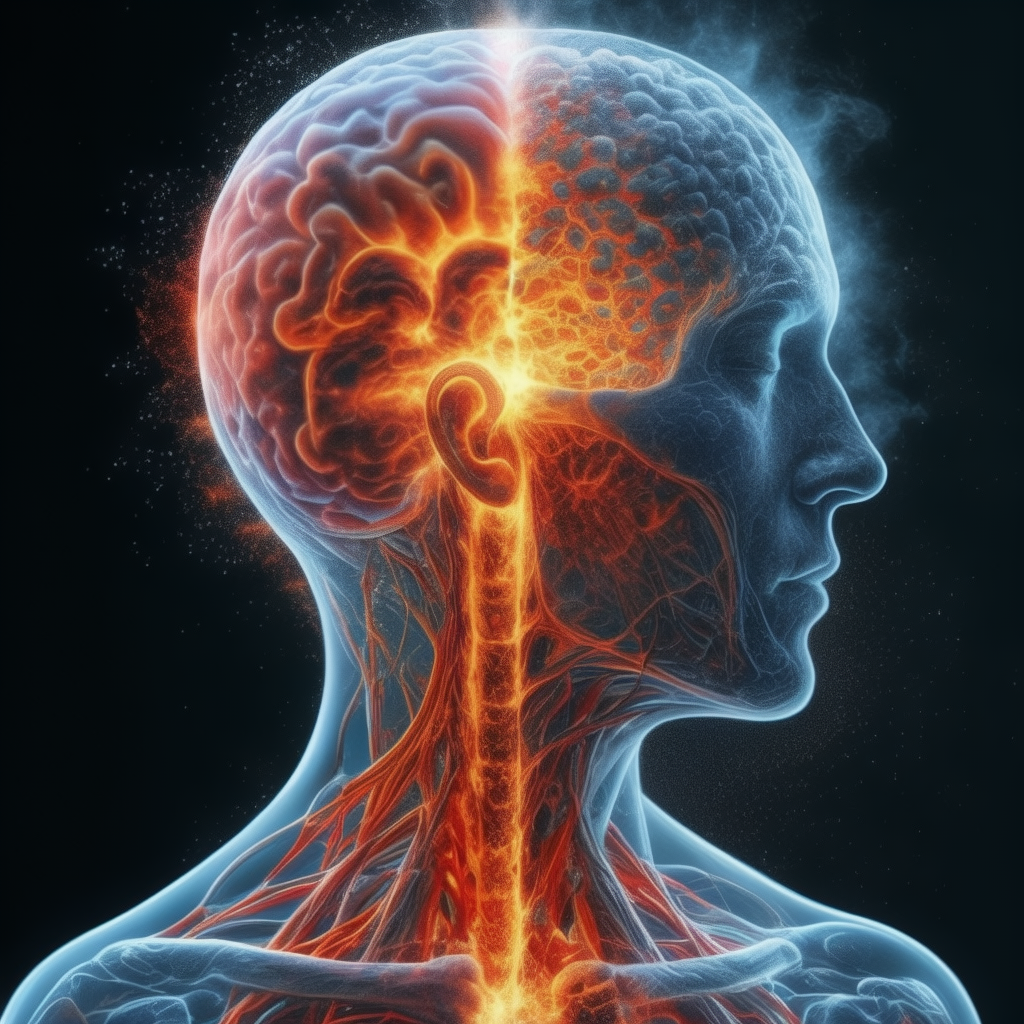Strategies for Dealing with High Stress and Pressure Situations and a Distracted Mind
Introduction
In today’s fast-paced world, dealing with high stress and pressure has become a common challenge for many individuals. Whether it’s due to demanding work environments, personal responsibilities, or unexpected life events, stress can significantly impact our mental and physical well-being. Additionally, a distracted mind often accompanies stress, making it difficult to focus and perform effectively. This blog post explores practical strategies to manage high-stress situations and regain mental clarity.
High stress and pressure are common in modern life, often leading to a distracted and overwhelmed mind. To navigate these challenges effectively, it’s crucial to explore diverse strategies that address both the sources and symptoms of stress. This blog post delves into additional techniques to manage stress and enhance focus.
Understanding Stress and Its Impact
Before diving into coping strategies, it’s essential to understand what stress is and how it affects us.
- Physiological Response: Stress triggers the body’s fight-or-flight response, releasing hormones like cortisol and adrenaline. While helpful in short bursts, chronic stress can lead to health issues such as hypertension, anxiety, and depression.
- Cognitive Effects: High stress levels can impair cognitive functions, leading to difficulties in concentration, memory retention, and decision-making.
Identifying Sources of Stress
Recognizing the root causes of your stress is the first step toward managing it effectively.
- Work-Related Stress: Deadlines, heavy workloads, and conflicts with colleagues can create a stressful work environment.
- Personal Life Stressors: Family responsibilities, financial concerns, and health issues are common sources of personal stress.
- Unexpected Events: Life’s unpredictability, such as sudden illness or loss, can also contribute significantly to stress levels.
Recognizing Early Signs of Stress
Early detection of stress indicators can prevent escalation and allow for timely intervention.
- Physical Symptoms: Unusual headaches, muscle tension, or digestive issues can signal rising stress levels.
- Emotional Changes: Increased irritability, mood swings, or feelings of anxiety may indicate stress.
- Behavioral Signs: Changes in eating or sleeping patterns, procrastination, and withdrawal from social interactions are often stress-related.
Strategies for Managing High Stress
Implementing effective stress management techniques can help you navigate through high-pressure situations more smoothly.
1. Time Management and Prioritization
Organizing your tasks and managing your time effectively can reduce stress.
- Prioritize Tasks: Focus on completing high-priority tasks first. Use tools like to-do lists and planners to stay organized.
- Break Tasks into Smaller Steps: Large tasks can feel overwhelming. Breaking them down into smaller, manageable steps can make them more approachable.
2. Mindfulness and Meditation
Practicing mindfulness can help calm your mind and reduce stress.
- Mindfulness Meditation: Spend a few minutes each day meditating. Focus on your breath and let go of distracting thoughts.
- Body Scan Techniques: Perform body scans to become more aware of physical sensations and reduce tension.
3. Physical Activity and Exercise
Regular physical activity is a powerful stress reducer.
- Aerobic Exercise: Activities like running, swimming, and cycling release endorphins, which are natural mood lifters.
- Yoga and Stretching: Yoga combines physical movement with mindfulness, helping to reduce stress and improve flexibility.
4. Healthy Lifestyle Choices
Making healthy lifestyle choices can bolster your resilience to stress.
- Balanced Diet: Eating a well-balanced diet with plenty of fruits, vegetables, and lean proteins can support overall health and stress management.
- Adequate Sleep: Prioritize getting enough sleep. Lack of sleep can exacerbate stress and impair cognitive functions.
Proactive Stress Prevention
Adopting habits that prevent stress from building up can improve overall well-being.
- Routine Establishment: Creating and sticking to a daily routine can provide a sense of structure and predictability.
- Personal Boundaries: Setting clear boundaries at work and in personal life helps maintain a healthy balance and prevent over commitment.
Techniques for Managing a Distracted Mind
A distracted mind can hinder productivity and exacerbate stress. Here are some techniques to improve focus and mental clarity.
1. Focused Work Sessions
Implementing structured work sessions can enhance focus.
- Pomodoro Technique: Work for 25 minutes, then take a 5-minute break. After four sessions, take a longer break. This method helps maintain concentration and prevent burnout.
- Time Blocking: Allocate specific time slots for different tasks throughout the day, reducing the tendency to multitask.
2. Digital Detox
Reducing screen time can help minimize distractions and improve mental clarity.
- Limit Social Media: Set specific times to check social media rather than constantly scrolling.
- Reduce Notifications: Turn off non-essential notifications on your devices to maintain focus.
3. Mindful Breaks
Taking mindful breaks can refresh your mind and improve productivity.
- Short Walks: Take a brief walk outside to clear your mind and get some fresh air.
- Breathing Exercises: Practice deep breathing exercises to calm your mind and reset your focus.
Building a Support System
Having a strong support system can provide emotional stability and practical help during stressful times.
- Seek Professional Help: Don’t hesitate to consult a therapist or counselor if you’re feeling overwhelmed. Professional guidance can offer valuable coping strategies.
- Connect with Loved Ones: Spending time with friends and family can provide comfort and reduce feelings of isolation.
Developing a Resilient Mindset
Building mental resilience can help you handle stress and distractions more effectively.
- Positive Thinking: Practice reframing negative thoughts into positive ones. Focus on what you can control rather than what you can’t.
- Goal Setting: Set realistic and achievable goals to give yourself a sense of direction and purpose.
Enhancing Mental Resilience
Building mental toughness can help you cope with stress more effectively.
- Cognitive Behavioral Techniques: Challenge negative thought patterns and replace them with constructive, realistic thinking.
- Gratitude Practices: Regularly acknowledging things you are grateful for can shift focus from stressors to positive aspects of life.
Leveraging Technology for Stress Management
Technology can be a useful tool in managing stress and enhancing focus.
- Stress-Tracking Apps: Use apps designed to monitor stress levels and provide relaxation techniques.
- Virtual Support Groups: Online communities can offer emotional support and stress management tips.
Nutrition and Hydration
Proper nutrition and hydration play a significant role in managing stress.
- Hydration: Staying hydrated helps maintain optimal brain function and can improve mood and concentration.
- Nutrient-Rich Foods: Consuming foods rich in vitamins, minerals, and antioxidants supports overall brain health and stress reduction.
Mind-Body Practices
Integrating mind-body practices can create a holistic approach to stress management.
- Tai Chi: This ancient practice combines gentle physical exercise and stretching with mindfulness, promoting relaxation and mental clarity.
- Progressive Muscle Relaxation: Systematically tensing and relaxing different muscle groups can reduce physical tension and stress.
Creative Outlets
Engaging in creative activities can provide an effective outlet for stress.
- Art Therapy: Drawing, painting, or other artistic expressions can help process emotions and reduce stress.
- Music Therapy: Listening to or creating music can be a powerful way to manage stress and improve mood.
Leveraging Nature
Spending time in nature has been shown to reduce stress and improve focus.
- Forest Bathing: Immersing yourself in a forest environment can enhance mood and lower stress levels.
- Gardening: Working with plants can be a calming and therapeutic activity, providing a sense of accomplishment and connection to nature.
Social Engagement
Maintaining social connections is crucial for emotional support and stress relief.
- Community Involvement: Participating in community activities or volunteer work can provide a sense of purpose and belonging.
- Support Networks: Building a network of friends, family, and colleagues who can offer support during stressful times is essential.
Financial Management
Financial stress is a common source of pressure. Effective management strategies can mitigate this stress.
- Budget Planning: Creating and adhering to a budget can provide control over finances and reduce stress.
- Financial Counseling: Seeking advice from financial experts can help navigate financial challenges and create a stable financial plan.
Continuous Learning and Skill Development
Investing in personal growth can enhance self-efficacy and reduce stress.
- Online Courses: Engaging in online learning can build new skills and provide a productive focus away from stressors.
- Workshops and Seminars: Participating in workshops related to stress management or professional development can provide valuable insights and tools.
Mindful Eating
Being mindful about eating habits can improve both physical and mental health.
- Mindful Eating Practices: Paying attention to the taste, texture, and sensation of food can enhance the eating experience and reduce stress-related overeating.
- Balanced Meals: Ensuring meals are balanced with carbohydrates, proteins, and fats can stabilize blood sugar levels and improve mood.
Creating a Calming Environment
Your physical environment can significantly impact stress levels and mental clarity.
- Decluttering: A tidy space can reduce feelings of chaos and stress, promoting a more peaceful mindset.
- Personalizing Space: Adding personal touches such as photos, plants, or calming colors can create a more relaxing environment.
Conclusion
Dealing with high stress and pressure, along with maintaining focus in a distracted world, requires a multifaceted approach. By recognizing early signs of stress, adopting proactive prevention strategies, and incorporating diverse techniques for stress management and mental clarity, you can effectively navigate life’s challenges. These additional strategies complement previously discussed methods, providing a comprehensive toolkit for managing stress and maintaining a clear, focused mind.
Managing high stress and maintaining focus in a distracted world requires a combination of effective strategies and a resilient mindset. By understanding the sources and effects of stress, implementing practical coping mechanisms, and fostering a supportive environment, you can navigate through life’s challenges more effectively. Remember, it’s important to take proactive steps to care for your mental health and well-being, ensuring that you can thrive even in high-pressure situations






